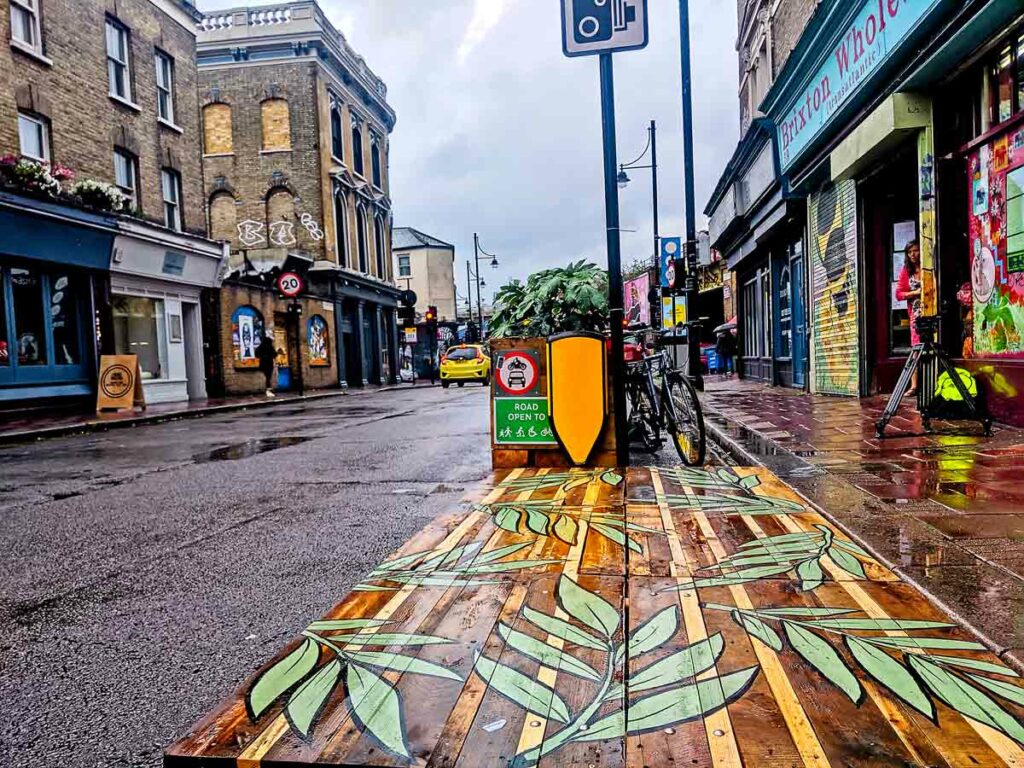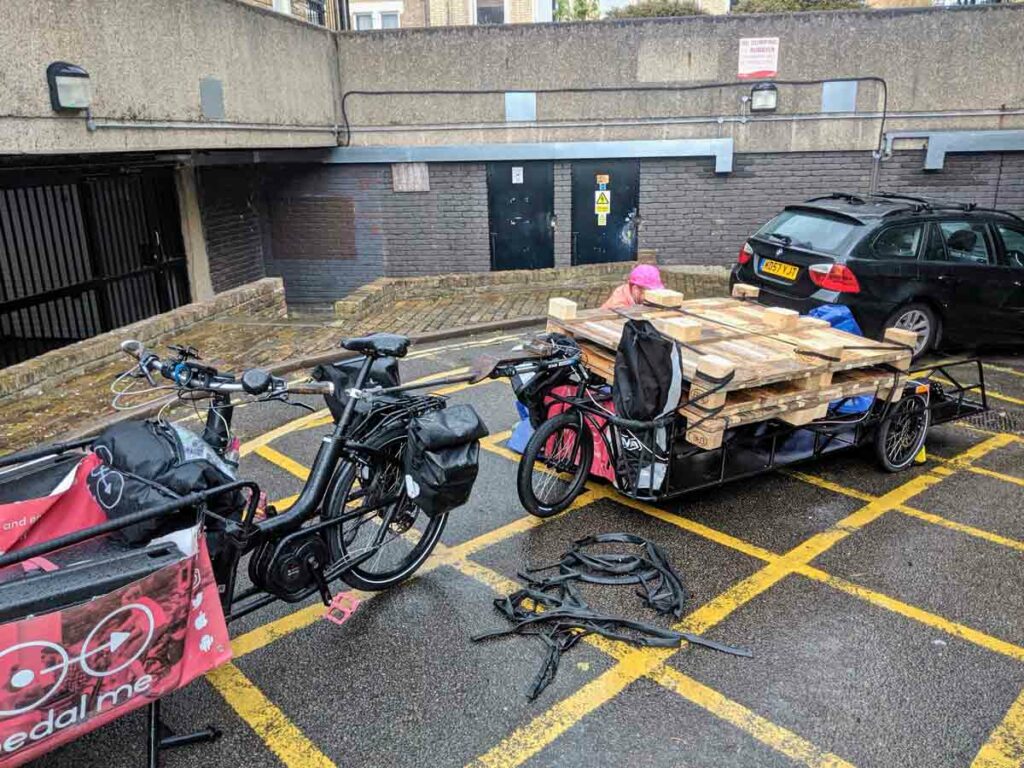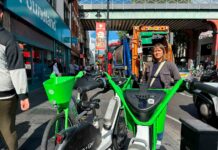
Pictures: Joel De Mowbray
Collaboration between a small Brixton-based company and a subsidiary of the massive multinational Ford Motor Company is responsible for a striking new footway on Atlantic Road.
Spin, the “micromobility” unit of Ford, joined forces with Dennis Boateng of InUse-ReUse and Joel De Mowbray of Yes Make.
In the US, Spin works with universities and local authorities to provide shared electric scooter schemes. It recently launched a UK pilot project in Milton Keynes.
It says its streets team works with local safe streets groups “to help creatively transform streets into people-centred places for people to walk, bike, scoot, or otherwise get around safely”.
Spin partnered and funded Dennis Boateng, who runs InUse-ReUse, and Joel De Mowbray from Yes Make, a community-focused urban design agency, to expand the pavement and create more space for people along Atlantic Road – good name for a transatlantic project.
Atlantic Road’s narrow pavements and people queuing as shops limit customer numbers were identified as a threat to social distancing early in lockdown.
Central government, regional authorities like the mayor of London, and local councils like Lambeth have acted to increase the room available for pedestrians.
De Mowbray, who has worked for Lambeth council as walking and cycling policy lead, thought of Boateng’s work repurposing and giving new life to the wooden pallets on which Brixton businesses receive deliveries.
“I saw businesses loading into their shops from pallets in the street. The pallets were perfectly the same height as the pavement,” De Mowbray says.
“I heard about what Dennis was up to, so got in touch to see if we could do something to widen the pavements using pallets.”

“Brixton is home,” says Boateng. “It was always going to be the first place to try this.
“The pallets we used were collected not even a mile from where they were originally used by businesses and then re-used to create new pavement space.”
Boateng calls the idea of using the pallets, many of which would end up in the trash except for his creative repurposing work, “a textbook example of the circular economy!”
De Mowbray says that guidance and support from Kay Cheng, who heads Spin’s Streets team, “gave us the ability to properly test our idea.
“Without Kay’s help it probably would have been another one of those great ideas that just never happened!”
And it’s not just a matter of spray-painting the wood and dropping it into place.
“With pallets, you need to bring the wood back to life and then start making it what you want it to be – so it is double the work like that,” says Boateng.
“Once the pallets were looking good, we added slats in the gaps of the pallets to make them into a proper platform and painted them with a tropical forest design.
“We bolted the pallets together in groups of six to create strong and stable platforms.”
Boateng’s workshop in Brixton’s ReMakery is close enough to Atlantic Road for the team to transport the new platforms by cargo bike.

A major benefit of the project, De Mowbray says, is its flexibility.
“These pallets can be taken out or moved as quickly as they can be put in.
“That allows flexible testing and the community can see and feel the change without steam rollers and tarmac coming in.” he says.
“In the long term, we want to see these types of features and approaches used across every borough in London, as a first step to help local people and councils test their design ideas and then move, improve, or make permanent.”





